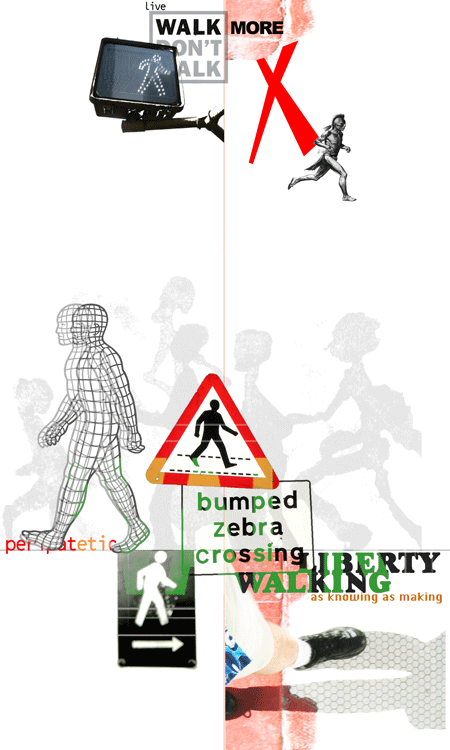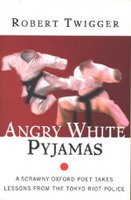William Wordsworth's
magnum opus "The Prelude"
Book 1 (lines 428-441)“Wisdom and Spirit of the universe!...”Nature’s experience creates in Wordsworth a pure clean slate, not tainted by the “vulgar works of man” (line 435)Shows how the power of Nature will take him beyond those who came before.
--
Book 1 The Vulgar works of man -the works discussed in the book but also the works/workings of the Enlightenment – These vulgar works taint the mind by denying the emotional reaction, the “wisdom and spirit of the universe” (line 428).These vulgar works are inferior because they don’t allow the glory of Nature shine. They cage and dissect Nature instead of appreciating it as a whole
--
Book 2 1. 11 443-65esp. 450-65 (p.403-4)
2. -book is about preserving childhood memories perceptions
-passage is central because it explains why that process is important
->not just for an artistic purpose, but the deeper purpose that underlies art (ie. understanding)
-returns to greater powers that are manifested in childhood memories
->God, nature
3. -anticipates change of adulthood & prepares reader not to see it as negative
-reminder to keep first books in mind throughout
--
Book 2 & overall L. This reiterated things I already believe about the relevance of literature to society.
A. Human thought processes are the same as natural cycles
eg: flowers start off as seed, slowly grows and develops and the dies. Our thought processis similar when we take time to think about our life or a memory.
L. I don’t know if I believe that poetic genius is an inherent trait or a product of environment, but it’s hard to disagree with Wordsworth’s reasoning & the example he embodies.
J. The text described nature the way I percieved and understood it to be
--
Book 3 Lines 97 -> “Oft did I leave...”to line 120 -> “...with highest truth” -he leaves the city to go to nature where he truly awakened to nature, he finds his true self and turns his mind into itself, etc.-central concepts of tranquility, truth, nature awakening, observation/reflection, etc. - Relates to Book two, around lines 479/480 when he knows there is a change but doesn’t know what it is yet until here.-at the end of this passage, he realizes that this is the step leading into a “community” and life, of the “highest truth.”-also he began the search for “universal things,” (the macrochosm), contraries and complimentaries in God and nature.
Book 3 -In the peripatetic journey, it is essential to avoid remaining idle, in order to further understanding of the world.-Like the poet, educational institutions and other urban constraints must be left to explore nature and ultimately consider/understand a higher truth (“the highest truth (l.120))-this enables the mind to be exercised to its potential.
--
Book 4 in context:
-Wordsworth’s wider sense of beauty in nature, as opposed to Blacks micro/macrocosm.
line 181-2= “a freshness also found at this time, In human life, the life I mean of those...”
-a precursor to the final statements of Book 13 – the mind of man giving/perceiving the beauty of nature
--
Book 4 (title: summer vacation->different context from modern associations->thinking back to Spring throughout Book 4->lines 121-127) of “The Prelude”
(starting line 181)
-passage begins with “freshness”, “human life”, “touched me with surprise” -> passage begins with personal reactions and moves towards universal reaction:
-generality: “pale-faced Babes”, “children of the neighborhood”, “Girls” -> no specifics, no names or associations
-line 67: “the transformation”-> reflects lines 194-6 when can see the newborn baby from the Spring transforming into a toddler stage during the Summer
--
Book 5= most significant passage (p. 447) 11.532-557 -glory of youth p.447 11.532-550 slowly diminishes but can be reclaimed through books that engaged us -doubt – 11.568 What happens when old books (favourites) no longer engage our imagination? then we read great poetry or engage with nature Book -is about fear of death – and doubt -poet sleeping on shore – dream of Arab – stone – geometric truth nature threatens to reclaim all <>Book 5 = most significant passage: p.447 11.532-557 About the power of books – moments of imagination recorded in time. “As the glory of youth fades, the power of books can re-engage us with this youthful exuberance. Our favourite books can bring us back to these moments. Moments of beauty (or truth, imagination) are recorded in books and we can experience/engage them when we read. Books are therefore immortal and timeless, similar to nature’s power, in their ability to affect our minds and imagination.
--
Book 6: Cambridge and the Alps: Chapter six clusters together Cambridge and the Alps, illustrating that the detached book-learning experience at Cambridge should not be taken alone, but married to sensual and social experience, (eg. the Alps). Clustered, variegated experience, acts, in Book 6, as a dialectical opposition with the more independent treatment of “Books” in Book 5. Lines 116 -134 – “Sequestered from my outward taste in books...what simplicity and sense.”
--
Book 71. Line 489-516 2. Describing how and why he is inspired to write such influential works. Development of works through experience and although he was inspired by beauty and nature, it is only in his maturity where he is able to recognize and understand the beauty. seen in: line 121 & 122 “Oh wondrous power of words” 3. Previously be explains his “independent spirit of pure youth” and in book seven this leads to his development of experience, but always, youth must come first
--
Book 8-Lines 375-428; (p.498-97) -image of man against nature leas him to recognize an unconscious love and reverence of human nature -also recognizes that we find evil as fast as we find good, so how can innocence be maintained? -it was when he first looked at man through the beauty of nature, the spirit of things as truth, that he was able to reconcile the existing qualities of good/evil and find love for human kind -this realization takes the form of a peripatetic journey
--
Book 9 RESIDENCE IN FRANCE -Lines 192-217; pg 513-514 -Although an Englishman and stranger to France (and her ‘speech’), he was accepted by them (French military officers). -felt “shunned and not tolerated” elsewhere -> England -Although the revolutionists were uneducated, he is entranced by their passion and human connection – their simplicity, and their ability to understand the national rights of the civilians. -Listening to these Officers as poets (their stories of heroes and their deeds) creates for him, a sublime. -Criticizes class system and monarchy in England; implies that “they ought to rule” (->Revolutionists) -Wandering in a different country; accumulating the essence of Paris and the Revolution. Reasoning/Relating his life: as an Englishman/ & England (->imperialism, monarchy, class system)
--
Book 9
So much more can be learned through experiencing the world and its people, then sitting in a classroom and reading about it. -Wordsworth puts more worth on human nationalism rather than only French nationalism. *The importance of human connection (mind and passion)
--
Book 10 The passage can be read as both what W.W. loves about the Revolution ad what he hates about it. -He loves the people uniting, rising up to overcome their oppressors and their inhumane living conditions -He hates that the result of this uprising is to replace the old system with a new system, that is the exact same. This aspect of the Revolution causes W.W. to abandon his faith in the Revolution. Book 11 begins his search fro a replacement ideology.
Rather than man having to be present for nature to have beauty, we feel beauty does exist, however, for man to see it, he must use his mind (imagination) to interpret it into something beautiful for man.) Although child-like innocence is necessary for imagination to grow, Wordsworth illustrates how experience is also a necessary part of the walk
--
Chapter 10 (P’d to Chapter 9 of Prelude) 1. Lines 307-345 p. 540-1 -his walk through France during time of the Revolution -He sees a united people fighting for the cause of the Revolution -> sacrificed life to bring an ultimate joy and freedom 2. Line 18-35 (p. 509) Because this is England and England appears to be Wordsworth’s ideal. At the end of the passage is Wordsworth leaving for France. He is writing about a former time as if he is in the moment looking back? (By the time this chapter is written, he had already renounced his views) 3. It is Wordsworth in the moment, walking, observing life in France. He determines that life has gone awry. There is too much experience not enough innocence; nature has been disrupted. That is why at this point he supports the French Revolution.
--
Book 11Shannon and Jane.
Having come to the realization that the realities of war contained little trace of the romantic notions that initially attracted Wordsworth to revolutionary France, Wordsworth admits, “I am lost.”
Here everything stops, and by looking inside himself, toward his strength in childhood, Wordsworth begins to move, this time in the direction of compassion and unity – yet weighed down by the experience of having witnessed, and been a part of, terrible things.
--
Book 11 Central lines (326-334) of the Prelude 2. We humans contain a reservoir of strength linked to feeling and not to Reason. For Wordsworth, this quality is mysterious, partly rooted in the experience of childhood, and involves a cyclical give and take. 3. Emerging from disillusionment (regarding the outcome of the battling in France) Wordsworth begins to place more value on nature and unity rather than the ideologies of war that involve the breaking up of territories and the division of people – all taking and no giving.
--
Book 12 -After the disillusionment of the French Revolution, Wordsworth finds inspiration and peace through applying peripeteia. -Example of education through meditation (of political events), and interaction with fellow man. --
--
Book 12Lines 145-184 pg. 572-573 - Walking on the “public road” inspires Imagination and guides us into eternity and the unknown. The importance and relevance of peripeteia is education of mankind through personal interaction with others. Also, it gives hope, peace and steadiness to pleasure, and heals and calms negative emotions. --
Book 13 – Central passage
1. Lines 442-448
“Prophets of Nature, we to them will speak/ A lasting inspiration, sanctified/ By reason and by truth, what we have loved/ Others will love; and we may teach them how;/ Instruct them how the mind of man becomes/ A 1000x more beautiful than the earth/ On which he dwells,”
2. The Prophets of Nature are the poetic geniuses who teach others, by example, how to write poetry. This is possible because of Imagination; which is what enables the mind of man to be more beautiful than Nature. (It is the God/Creator type Imagination that is necessary.)
3. It is a conclusion statement about what good poetry is and how to get there. The preceding books lead up to this (your past leads up to your present state). It is the end of the walk through the prelude.
--
 Assuming that the University doesn't close on Thursday, we'll have a great closing class. Shepherds' Pie, cheese, wine and laudnum .... or brandy at least, a last loving look at the glory that is Mary Shelley, and a fond reflection on early English Romanticism. We're all Canadians -- we'll be there!
Assuming that the University doesn't close on Thursday, we'll have a great closing class. Shepherds' Pie, cheese, wine and laudnum .... or brandy at least, a last loving look at the glory that is Mary Shelley, and a fond reflection on early English Romanticism. We're all Canadians -- we'll be there! Mary Shelley saw in a terrible nightmare "...a pale student of the unhallowed arts: " a scientist, that is, doing unholy things to the dead.
Mary Shelley saw in a terrible nightmare "...a pale student of the unhallowed arts: " a scientist, that is, doing unholy things to the dead.


























